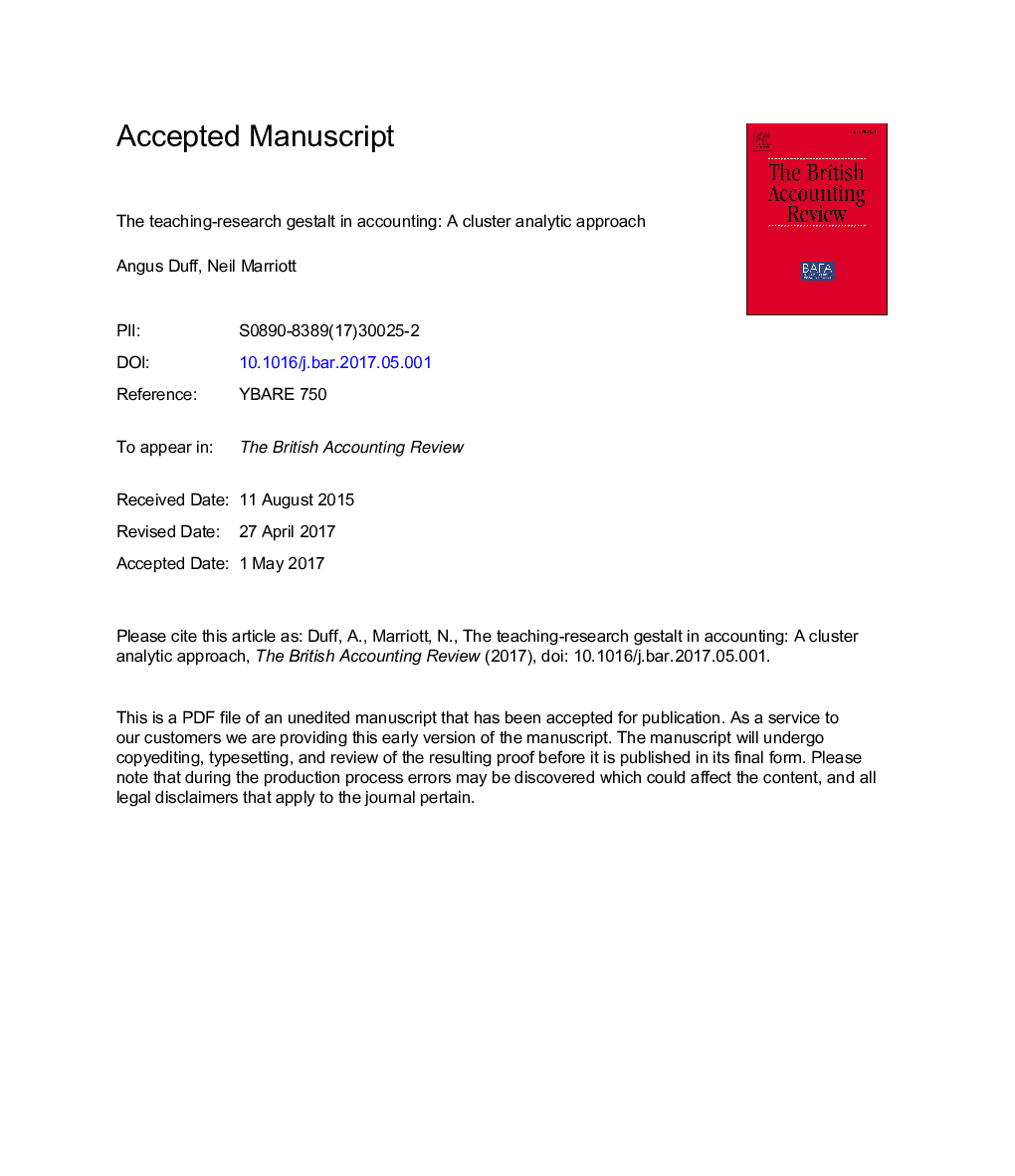| Article ID | Journal | Published Year | Pages | File Type |
|---|---|---|---|---|
| 5107530 | The British Accounting Review | 2017 | 47 Pages |
Abstract
This paper considers accounting academics' views of the mutuality of accounting research and education. These views are captured by administering a survey instrument that measures eleven dimensions of the relationship between teaching and research in the accounting discipline. This model was developed from the extant education literature considering those factors that encourage or militate against the integration of accounting research and education (the teaching-research gestalt). These factors relate to issues relating to students, researchers, the curriculum and extrinsic rewards available. Cluster analysis was performed to identify distinct subgroups of academics with similar teaching-research relations profiles. Three distinct clusters were identified. One cluster labelled 'teaching-research incongruity' sees teaching and research as mutually exclusive activities. In contrast 'teaching-research connexion' sees teaching and research as mutually reinforcing and compatible. A third cluster, allied to the world of teaching-research incongruity, emphasises the lack of extrinsic rewards for integrating teaching and research. This third cluster we label 'Extrinsic-reward focus'. The clusters are described in terms of their demographics. There are significant barriers to integrating accounting research into education; these include the role of professional education and resistance from many accounting academics in universities.
Keywords
Related Topics
Social Sciences and Humanities
Business, Management and Accounting
Accounting
Authors
Angus Duff, Neil Marriott,
